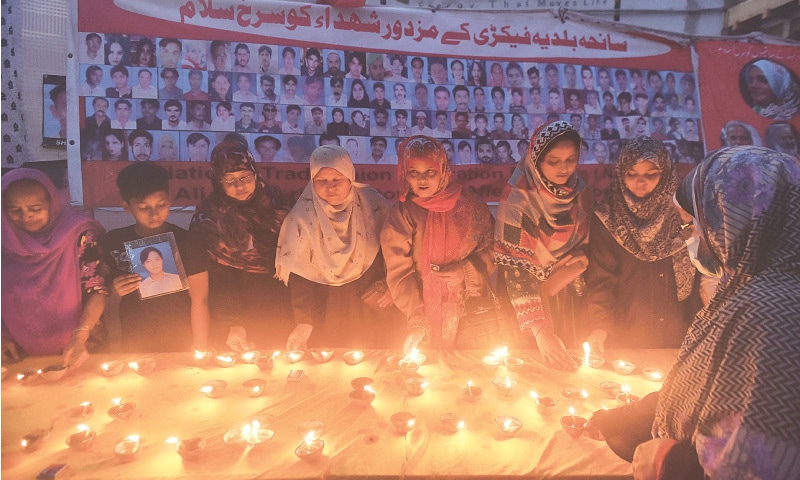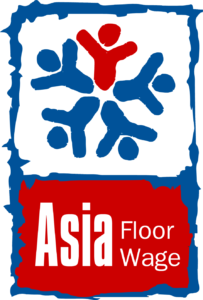The Ali Enterprises Factory Fire And Thirteen Years Of Impunity
Written by Sajid Ali

In August of 2012, the Ali Enterprises Textile factory in the Baldia district of Karachi, Pakistan was issued with a SA8000 certificate by Italian auditor RINA after an audit. The certification, purchased by the German brand KiK, confirmed that the factory was safe.
A few weeks later, a fire tore through the factory and claimed the lives of 260 workers.
On September 11, 2012, the fire at the Ali Enterprises garment factory in Karachi’s Baldia district killed 260 workers and injured more than 50 others. The workers were trapped behind barred windows and locked exits, with only one unobstructed passage to escape. Most suffocated or were burned alive. The incident was a direct result of a system that is designed to prioritise profits, and neglect worker safety and accountability. Just weeks before the fire, Italian auditor RINA certified the factory as “safe” under SA8000 standards. The audit—purchased by KiK, the German discount retailer sourcing from Ali Enterprises—hid a death trap behind a stamp of approval.
The fire exposed systemic violence in global supply chains: unsafe factories, hollow auditing, and brands that prioritise profits over workers’ lives. It sparked years of organising by unions and allies demanding justice, compensation for families, and enforceable agreements that place workers and unions—not brands or auditors—at the centre of monitoring and remediation.
Lessons Learned – But What Has Changed?
Many factories continue to operate without functional fire exits, without compliance with international labour standards, and without independent, union-led monitoring. The accountability gap remains, as global brands continue to deflect responsibility, hiding behind social audits while suppressing workers’ right to organise.
Binding Solutions, Not Hollow Promises
- Enforceable Agreements, Not Empty Codes – Brands must sign binding, legally enforceable agreements with unions to guarantee health and safety. Without binding brand accountability, factories will continue to be death traps.
- Union-Led Safety Committees – Workers and unions must lead safety committees, inspections, and remediation processes.
- Transparent and Binding Supply Chains – Brands must stop hiding behind voluntary codes. Enforceable brand agreements with unions must include independent monitoring, grievance systems, and business consequences for violations.
- Strengthening Trade Unions – Freedom of association and collective bargaining rights are essential so workers can raise safety concerns without fear.
- Compensation and Ongoing Justice – Families of victims must receive full compensation, and permanent union-led justice mechanisms must be established to address future industrial disasters.
A Call for Dignity and Safety
The Ali Enterprises fire was not a one-off accident—it was industrial murder, born from brands’ pursuit of profit at any cost. Brands that refuse to acknowledge that every worker deserves the right to life, dignity, and a safe workplace.
On the 13th anniversary of the fire at Ali Enterprises, we honour the victims by demanding binding accountability from brands, full compensation for families, and enforceable agreements that protect workers’ lives. Memory alone is not enough. AFWA stands in solidarity with the victims, their families, and the labour movement in Pakistan — and reaffirms that this fight is for every garment-producing country where workers remain at risk. What is needed is not just remembrance, but action, accountability, and solidarity with garment workers and unions who continue to fight for safety, dignity, and justice across Asia.
